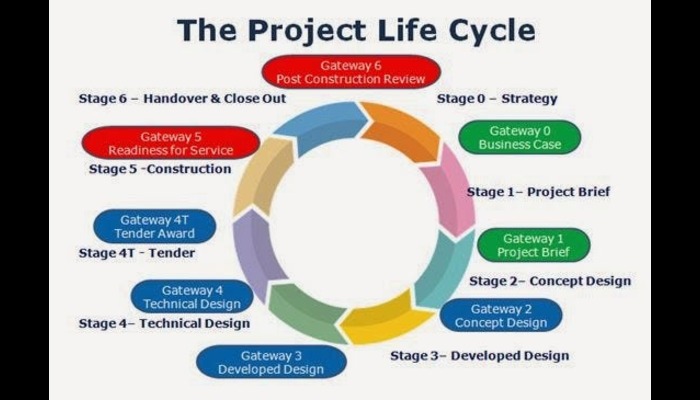Starting a project may be thrilling and difficult at the same time. Gaining insight into the dynamics of project cycles is essential as you work your way through the complexities of project management. Understanding the subtleties of project cycles is essential to generating good results, regardless of experience level. We’ll examine each stage of a project cycle in this article, including tips and techniques for completing each one successfully.
Comprehending Project Cycles
Gaining knowledge of project cycles allows you to comprehend the organized method of overseeing projects from start to finish. There are usually several stages in a project cycle planning, initiation, execution, monitoring, and closing. Every phase is essential to steering the project in the direction of success. Stakeholders work together throughout the project life cycle to establish goals, distribute resources, and track advancement. Understanding project cycles helps people manage projects more skillfully, foresee problems, and complete tasks on schedule and within budget.
Launching an Initiative
A project’s launch signifies the fundamental stage at which concepts are turned into workable strategies. Stakeholders define important deliverables and lay the foundational work needed for the project to succeed. Stakeholder involvement and clear communication are essential for guaranteeing alignment and buy-in from all stakeholders involved. In addition, risk assessments and feasibility studies are carried out to determine the project’s viability and possible obstacles. Project teams enable efficient planning and execution in the later stages of the project cycle by establishing a solid foundation at the start phase.
Organizing and Getting Ready
Project teams engage in thorough planning and preparation to guarantee project success. Creating detailed plans that specify activities, deadlines, and resource allocations is part of this step. Project schedules are created to guarantee effective workflow and order of tasks. To maximize use and reduce risk, budgeting, and resource allocation are carefully examined. Communication plans are also set up to help with efficient teamwork and stakeholder involvement. Project teams meticulously plan and prepare to lay the groundwork for successful project outcomes and smooth execution.
Implementation and Execution
Project plans are implemented to accomplish the desired results during the execution and implementation phase. At this phase, team members are given tasks to complete, and project activities are actively carried out by the timetable that has been set. Project managers are essential for monitoring development, addressing problems, and guaranteeing that quality standards are met. Effective communication between team members and stakeholders is essential to maintaining alignment and overcoming possible roadblocks. Monitoring the project’s development regularly enables prompt course corrections and adjustments to maintain it on schedule. Project teams can get closer to accomplishing project goals and deliverables by concentrating on execution and implementing it diligently.
Observing and Regulating
Project progress is regularly monitored during the monitoring and controlling phase to make sure it is in line with the set plan. During this phase, key performance indicators (KPIs) are routinely evaluated to track developments and spot any departures from the project’s goals. To keep track of deadlines, finances, and milestones, project managers use a variety of monitoring tools and strategies. Project teams can quickly resolve any problems or dangers that could affect project outcomes by keeping a close eye on things. Controlling procedures are put in place to reduce risks and maintain project direction. For information to be distributed and for stakeholders to be informed at every stage of the process, effective communication channels are essential.
Completion and Assessment
Project completion is completed at the closing and evaluation phase, and results are evaluated to extract insightful information. Completing any outstanding work, recording project deliverables, and getting last-minute approvals from stakeholders are all part of this phase. Post-project assessments are carried out to find areas for improvement and to assess the project’s success about predefined criteria. Documenting lessons learned helps to improve corporate knowledge and guide future initiatives. Celebrating accomplishments and acknowledging the work of team members are additional activities related to project completion. Through comprehensive assessments and concluding actions, project teams guarantee that the project’s accomplishments are acknowledged and that important insights are recorded for subsequent undertakings.
Conclusion
Gaining an awareness of the subtleties of project initiation, planning, execution, monitoring, and closing gives you the resources you need to take on any problem that may arise. Maintain open lines of communication, keep a close eye on developments, and be ready to make any required adjustments as you go. Recall to acknowledge successes and draw lessons from failures because every experience advances your career as a project manager.



